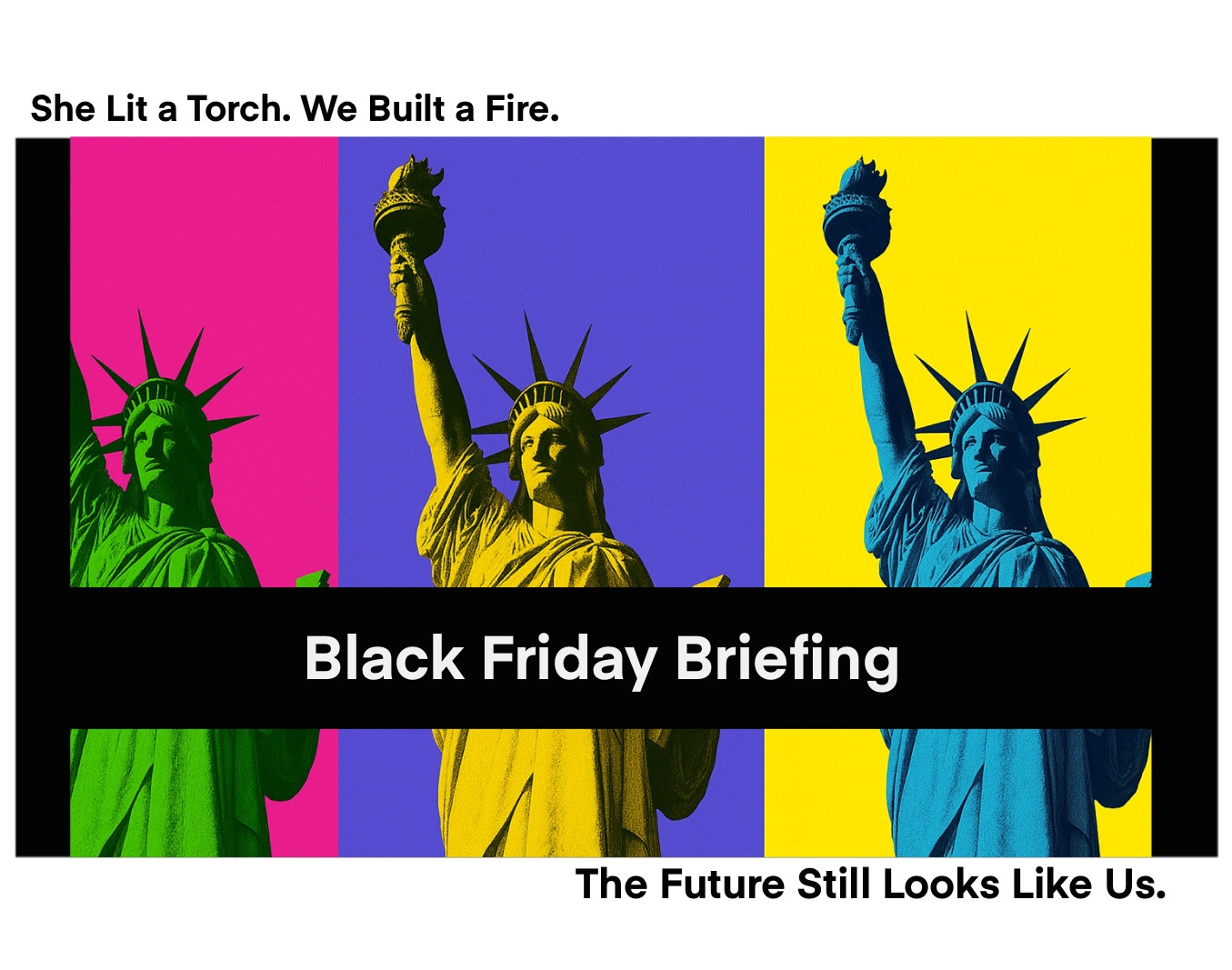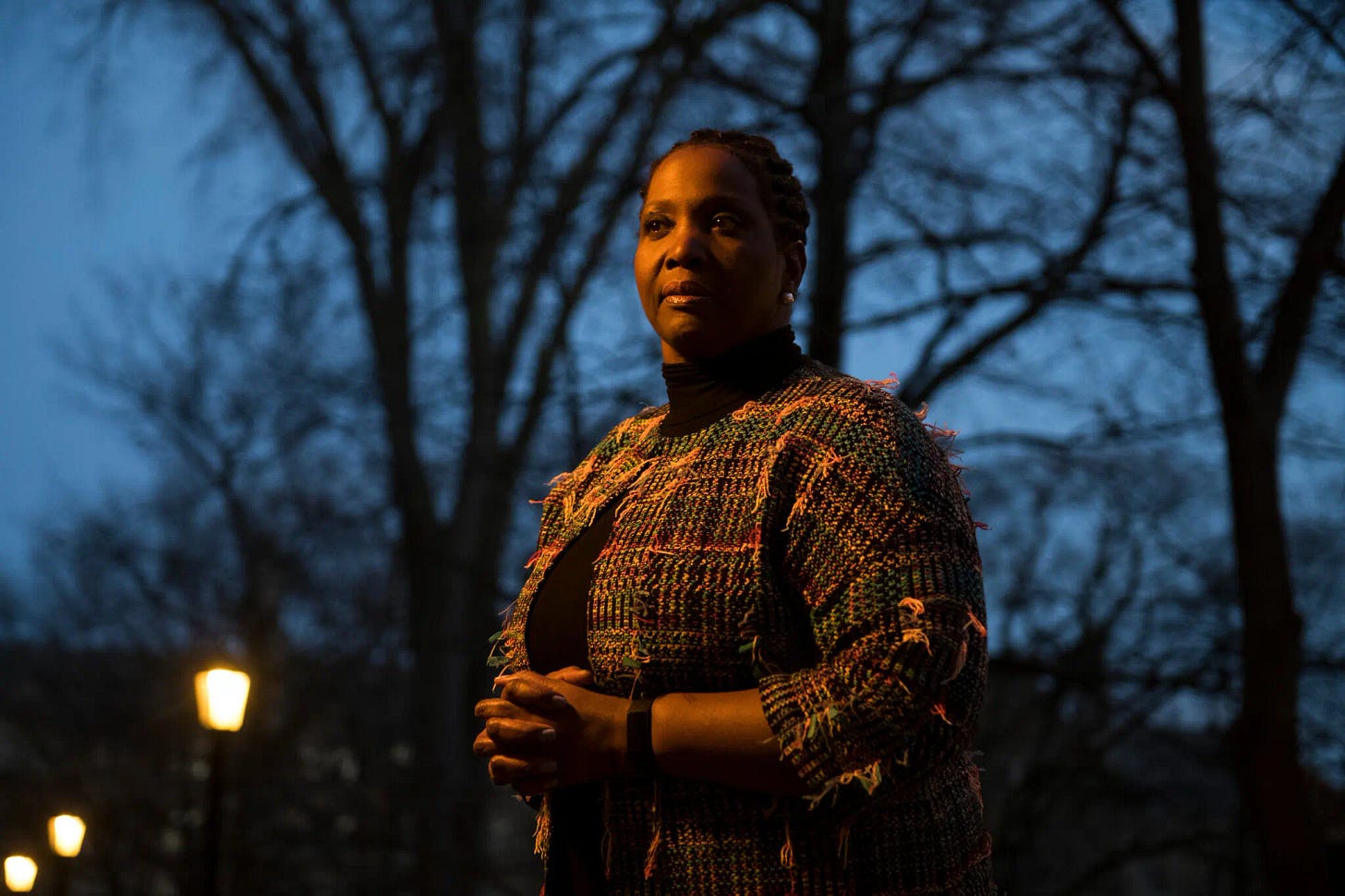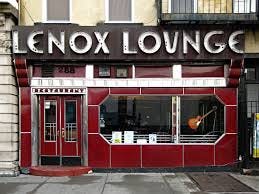Black Friday Briefing – August 22, 2025
Trump Targets Fed’s Only Black Woman Governor (Aug. 20): President Trump publicly called on Federal Reserve Governor Lisa Cook to resign, amplifying a political ally’s dubious mortgage allegations against her . Cook – the first Black woman on the Fed board – fired back that she has “no intention of being bullied” out of her post . Democrats blasted Trump’s move as a “blatant” effort to oust a qualified Black official and install a loyalist, undermining Fed independence and Black representation at the highest economic levels . Cook’s stance has galvanized civil rights groups defending her tenure amid what they call an intimidation campaign.
Trump Backs Down on D.C. Police Takeover After Lawsuit (Aug. 21): In a rare retreat, the Trump administration reversed course on seizing control of Washington D.C.’s police department, agreeing to let Chief Pamela Smith remain in command. The climb-down came after D.C.’s attorney general sued, calling U.S. Attorney General Pam Bondi’s attempt to install a DEA official as acting chief a “brazen usurpation” of local authority . The White House’s abrupt about-face – leaving Chief Smith in charge – is being hailed by D.C. leaders as a home rule victory. However, officials remain wary as the administration’s push to federalize policing in the majority-Black city may resurface in other forms.
NAACP Shuns Trump at Convention, Citing “Civil Rights” Conflict (Aug. 18): Meeting in Charlotte, the NAACP took the extraordinary step of not inviting President Trump to its national convention – the first time in 116 years a sitting president was excluded . NAACP President Derrick Johnson said Trump’s actions are “against our mission to advance civil rights”, noting “the current president has made clear his mission is to eliminate civil rights” . The NAACP has filed multiple lawsuits against Trump policies – from education to voting – and used the convention to strategize resistance. Organizers stressed that welcoming a president actively rolling back civil rights would be untenable, choosing principle over tradition.
Nearly 300,000 Black Women Out of Work Spell “Red Alert” (Aug. 19): An alarming exodus of Black women from the U.S. workforce is raising fears of a looming crisis. Roughly 300,000 Black women have left or been pushed out of jobs since May, driving Black female unemployment to about 6% – double the rate for white women . Economists call the trend a “flashing red” warning for the economy . Experts cite factors including caregiving burdens, layoffs in sectors like education and healthcare, and structural racism in hiring and workplaces. Advocacy groups are pressing for targeted job programs and childcare support, worried that Black women’s gains from the past decade are eroding rapidly without bold intervention.
Years of Self-Reliance: Black Business League Celebrates Legacy (Aug. 20): The National Business League (NBL) – founded by Booker T. Washington in 1900 – hosted a landmark 125th Annual Black Business Conference at Tuskegee University and Atlanta’s Hilton Hotel . Under the theme “125 Years of Self-Determination and Economic Power,” the gathering convened over 3,000 Black entrepreneurs, officials, and delegates from 30+ African and Caribbean nations . They celebrated milestones (including the 130th anniversary of Washington’s Atlanta Exposition speech) and strategized on accessing capital and global markets. NBL President Ken L. Harris praised the diaspora presence and the league’s enduring mission: empowering Black businesses through “unity, legacy, and innovation” across generations.
Small HBCU Nets Third $10 Million Gift, Touts “Miracle” Growth (Aug. 14): Livingstone College, a private HBCU in North Carolina, announced an anonymous $10 million donation – its third eight-figure gift in three years . President Dr. Anthony Davis dubbed it the “Miracle on Monroe Street,” noting the same donor has now given $30 million total to bolster Livingstone’s endowment and infrastructure . The latest infusion, arriving just before students return, will fund scholarships and campus upgrades as the college aspires to become “the premier private HBCU” in the region . At a time when many Black colleges struggle financially, Livingstone’s uncommon windfall has faculty, students and alumni rejoicing – and asking whoever the mystery benefactor is to please keep it coming.
Florida HBCU Sees Record Applications Surge (Aug. 19): Edward Waters University in Jacksonville is reporting the highest number of applications in its 158-year history for the fall term . The HBCU received over 11,500 applications, a 6.2% jump from last year and a sign of surging interest in historically Black colleges . University officials attribute the boom to new programs (including grad degrees) and aggressive outreach showcasing EWU’s legacy as Florida’s first HBCU. “This historic milestone speaks volumes about our growing momentum and reputation,” said President A. Zachary Faison Jr. The application spike reflects a broader trend: many HBCUs are seeing enrollment and interest climb as Black students seek culturally affirming college experiences amid today’s social climate.
Leaders Confront Rising Suicide Crisis Among Black Youth (Aug. 19): Amid reports that suicide rates for Black teenagers have climbed sharply, mental health advocates and experts convened a series of panels and town halls in cities from New York to New Orleans. They pointed to Black youth facing unique stresses – racism, social media bullying, and lack of access to care – as contributing to the tragic rise in suicide attempts. In Newark, clinicians launched a “Black Youth Mental Wellness” task force to push culturally tailored interventions. And in Atlanta, churches are hosting healing circles for Black teens. Organizers say the discussions, timed during back-to-school season, aim to destigmatize therapy in Black communities and urge schools to hire more Black counselors. One psychologist noted, “Our kids are crying out. It’s on all of us to respond with love, resources, and hope.”
Opioid Deaths Soar Among Older Black Men, Prompting Calls for Action (Aug. 20): Health officials in Minnesota sounded the alarm after data showed Black men over 45 are dying from opioid overdoses at disproportionately high rates . This vulnerable group often missed by public health outreach saw a surge in fatalities involving fentanyl and other synthetic opioids. “It’s a silent epidemic,” one expert said, noting few addiction programs are designed for older African American men . Advocates are urging “culturally specific” responses, like Black-led support groups and targeted treatment that accounts for trauma and distrust of the medical system . With overdoses rising statewide, community groups in Minneapolis and St. Paul have begun hosting overdose response trainings in Black churches and barbershops, hoping to save lives by getting naloxone into the hands of those most at risk.
Sickle Cell Champion Laid to Rest in Canada at 103 (Aug. 20): Lillie Johnson, a Jamaican-born nurse and renowned sickle cell disease trailblazer, was memorialized in Toronto on Aug. 20. Johnson – who died at age 103 – was celebrated for dedicating four decades to fighting sickle cell anemia in Black communities. She founded the Sickle Cell Association of Ontario in 1981 and successfully lobbied to have sickle cell testing added to newborn screening . Colleagues noted that as a Black woman immigrating in the 1950s, Johnson rose to become Ontario’s first Black public health director . Tributes poured in praising her life’s work: improving care and ending stigma for a disease that mainly affects people of African descent. “Because of Lillie, countless lives were saved and suffering eased,” one speaker said. “She gave our community the gift of hope.”
Black Trans Woman Killed in Virginia, Highlighting Epidemic (Aug. 18): A tragic milestone in the violence against Black transgender women: 31-year-old Kasí Rhea was shot dead in Lynchburg, Virginia on August 18 . Rhea, a beloved hairstylist, was found fatally wounded in a car, and police have yet to identify a suspect. Her death has drawn outrage from LGBTQ advocates, who note Rhea is at least the 15th transgender American killed this year – the majority Black transgender women. Activists in Virginia held a vigil calling for justice for Rhea and an end to what they deem an “epidemic of transphobic violence.” They also urged media and authorities to treat her case with urgency. “Black trans women are targeted for living their truth,” one advocate said. “Kasí deserved safety and joy, not a death that is becoming too familiar in our community.” Rhea’s family remembered her as “a beautiful soul” and have asked anyone with information to come forward.
Jamaican Diaspora Celebrates Independence in New Jersey (Aug. 19): Jamaican-Americans in Englewood, NJ marked Jamaica’s 63rd Independence anniversary with a vibrant community celebration. The Englewood event honored local Jamaican diaspora leaders and highlighted “63 years of contributions” Jamaicans have made to North Jersey . Attendees enjoyed reggae music, Jamaican cuisine, and reflections on the island nation’s post-colonial journey since August 1962. Organizers noted that while Jamaica is a small country, its diaspora has had outsized impact culturally and economically. Similar under-the-radar Independence Day gatherings took place in U.S. cities with significant Jamaican populations – from Brooklyn to South Florida – as the diaspora proudly celebrated their heritage while also acknowledging challenges back home. One Englewood honoree said, “We not only celebrate Jamaica’s independence, we celebrate our interdependence – the way we’ve built communities here while keeping our roots alive.”
Ghana Unveils “December in GH” to Woo African Diaspora (Aug. 19): Building on the momentum of its Year of Return campaign, Ghana announced a new initiative to attract the diaspora for end-of-year festivities . Dubbed “December in GH,” the program will offer curated cultural events, tours, and investment forums throughout December. Ghana’s tourism ministry highlighted the “Black Star Experience”, a yearlong effort giving African diaspora visitors greater access to heritage sites and even paths to dual citizenship . The push comes as Ghana has become a top destination for Black Americans reconnecting with Africa – especially during the holiday season when festivals and Afrobeat concerts abound in Accra. Officials expect December travel to Ghana to break records. “We want to make Ghana the ultimate homecoming for the African diaspora,” said a government spokesperson, emphasizing the theme of reconnection. Diaspora organizations in the U.S. are spreading the word, excited that Ghana continues to roll out the welcome mat.
Black Farmers Still Waiting on Debt Relief (Aug. 22): Despite legislation intended to help, many Black farmers have yet to see promised debt relief – and some fear time is running out. Congress allocated $2 billion last year to address USDA loan discrimination, but bureaucratic delays and lawsuits have slowed distribution. “It’s been over a year, and I haven’t heard a thing,” said an Alabama farmer who faced foreclosure. Advocates note that Black farmers dwindled from 14% of U.S. farmers a century ago to under 2% today, due largely to decades of discriminatory lending. The National Black Farmers Association warns that without swift action, more families will lose land. They’re pushing the USDA to expedite debt cancellations before the next planting season. Meanwhile, Black farmers from the Carolinas to Mississippi have been protesting outside USDA field offices. “We fought for this aid,” said NBFA President John Boyd Jr., “and we’re damned if we’ll let it slip away due to red tape or politics.”
Trump Targets Lead Pipe Rule, Alarming Black Communities (Aug. 19): Republican lawmakers allied with President Trump moved to kill a Biden-era mandate to replace lead water pipes, sparking outrage from environmental justice groups . The EPA’s new Lead and Copper Rule was set to force utilities nationwide to identify and remove all lead service lines within 10 years, a step experts say is crucial for cities like Detroit, Baltimore, and Chicago where lead-tainted water disproportionately harms Black residents . Trump-friendly legislators introduced resolutions in Congress to nullify the rule , calling it burdensome. Advocates note Black children already have significantly higher blood lead levels than whites due to antiquated plumbing . “Without this mandate, those toxic pipes will stay in the ground,” warned a Natural Resources Defense Council attorney . “This rollback isn’t about saving money – it’s about whose lives we value. Every child deserves safe water.”
Federal Court Demands New Alabama Map with 2nd Black District (Aug. 21): A panel of federal judges again struck down Alabama’s congressional map for diluting Black voting power, rebuking state lawmakers for defying a Supreme Court order. The court ruled that Alabama’s latest map – which maintained only one majority-Black district out of seven in a state that is 27% Black – violates the Voting Rights Act by denying Black voters fair representation. The judges directed an independent expert to draw a new map with two majority-Black districts in time for the 2026 elections. Civil rights groups applauded the decision as a hard-fought victory. “The dogged attempts to deny Black Alabamians an equal voice have been exposed and rejected,” said a lawyer for the plaintiffs. State officials grudgingly acknowledged they may have to finally create a second Black district, though some signaled they might appeal. Voting rights experts say the case is a bellwether, as other Southern states face similar battles over electoral maps and racial fairness.
Grassroots Block Parties Mark Hip-Hop’s 50th Birthday (Aug. 20): While big corporations threw concerts to commemorate Hip-Hop’s 50th anniversary, Black communities across the country hosted their own old-school block parties and DJ battles to honor the culture’s origins. In the Bronx – where DJ Kool Herc’s legendary 1973 party birthed hip-hop – local crews set up turntables and breakdancing cyphers in Cedar Park, keeping the celebration authentic. Similar community jams popped up in Philadelphia, Detroit, and Los Angeles, focusing on hip-hop’s original elements: DJs, MCs, breakdance, and graffiti. Organizers stressed that beyond the glitzy galas, “hip-hop was born at our block parties, in our rec rooms, for us.” The grassroots events also served as a reunion for pioneers often overlooked. One 70-year-old Bronx DJ smiled seeing teenagers studying his every scratch: “The torch is being passed in the park, not the boardroom,” he said. For many, these DIY jams were the true spirit of Hip-Hop 50 – a culture of the people, by the people.
Chicago Community Opens Black-Led Grocery in Food Desert (Aug. 21): After years without a local supermarket, residents of Chicago’s Englewood neighborhood celebrated the grand opening of a community-owned grocery store on Thursday. Housed in a formerly vacant building, the new market is a Black-led cooperative created in response to major chains abandoning this South Side area. It offers fresh produce, meats and staples at affordable prices – a godsend in a predominantly Black community where many have had to travel miles for groceries. “This is more than a store, it’s an oasis,” said one elder at the ribbon-cutting. The co-op’s members invested sweat equity and small dollars to launch the project, inspired by historical examples of Black mutual aid. Urban planners hailed it as a model for addressing food deserts through self-determination. Residents are proud: the profits will be reinvested locally, and the aisles feature products from Black farmers and vendors. “We’re feeding ourselves and taking back our neighborhood,” said the store’s general manager, a lifelong Englewood resident.
“Toy Gun Buyback” Aims to Protect Black Children (Aug. 22): In an innovative anti-violence effort, activists in Baltimore held a “toy gun buyback” – offering kids $10 to $50 gift cards in exchange for realistic toy guns. The pilot program stems from grim incidents where Black children with toy guns, like Tamir Rice, have been mistaken for threats by police. Organizers collected dozens of BB guns, imitation pistols, and toy rifles. “Even toy guns perpetuate a culture of gun normalization,” said a Black pastor who helped organize the event. By turning them in, “we’re starting a conversation with our kids about alternatives to gun play.” Each child received a book and was entered in a raffle for bikes and tablets as further incentive. Parents in attendance praised the program for raising awareness. Experts note that in America’s heavily armed environment, Black youth face higher risks – and while a toy gun exchange is no panacea, it’s a creative step by the community to keep their children safe and encourage non-violent play.
Harlem Jazz Landmark Saved by Community Buyout (Aug. 20): A coalition of Black artists and entrepreneurs in Harlem have purchased the historic Lenox Lounge, rescuing the famed jazz club from development doom. The Art Deco lounge – where Billie Holiday and Miles Davis once played – shut down in 2012 and was at risk of being gutted. But a group of local investors, led by a Black-owned development firm, secured the building this week with plans to restore and reopen it as a live jazz venue and cultural center. “This isn’t just real estate – it’s our heritage,” said a Harlem native involved in the effort. The move is a significant community win against gentrification in Upper Manhattan. Residents had watched cultural institutions shutter one by one, but the Lenox Lounge’s revival offers hope. The new owners vow to employ local talent and youth in the renovation. Jazz aficionados are elated; one called it “an act of cultural preservation that shows Harlem’s soul is not for sale.”
Louisiana Bans Discrimination Against Black Hairstyles (Aug. 21): Starting next year, it will be illegal in Louisiana to discriminate against someone for wearing natural Black hairstyles. The state quietly enacted its version of the CROWN Act, joining over 20 others that have banned bias against styles like afros, locs, braids, Bantu knots, and twists. Black women testified about being sent home from work or school due to their hair, a practice the new law deems racial discrimination. The measure enjoyed rare bipartisan support. “Our natural hair is part of who we are,” said one legislator, noting Louisiana’s legacy of the 18th-century Tignon laws that once forced Black women to cover their hair. The law’s passage, which did not get major press coverage, was applauded by African American students and professionals statewide. Advocates in the few remaining states without such protections – many in the South – are stepping up pressure, saying no one should have to change their hair to succeed in school or the workplace.
“The Embrace” Memorial in Boston Becomes Teaching Moment (Aug. 19): In Boston, a new memorial on the Common called “The Embrace” – depicting the hug between Rev. Martin Luther King Jr. and Coretta Scott King – has become an unlikely focal point for Black history education. Since its controversial unveiling last year, the abstract sculpture has drawn curious visitors. Sensing an opportunity, local Black youth organizers now host weekly storytelling circles at the monument to discuss the Kings’ legacy and Boston’s own civil rights history. They’ve invited elder residents who marched with MLK in the 1960s to share memories with teens. The initiative has transformed what some had derided as an odd artwork into a living outdoor classroom. Students from nearby schools attend and are assigned to research lesser-known Boston civil rights leaders whose names are engraved around the sculpture’s base. Organizers say they’ve turned initial criticism of The Embrace into a “teachable moment on art, love and liberation.” The city’s parks department is considering funding the program to continue next year.
Niger Coup Spurs Solidarity Rallies in U.S. African Communities (Aug. 22): The recent military coup in Niger – which ousted the country’s democratically elected president in late July – has prompted under-the-radar solidarity protests among West African diaspora communities in U.S. cities. In New York’s Little Senegal in Harlem, dozens of Nigeriens and other African expats gathered with signs reading “Hands Off Niger” and “Stop Neo-Colonialism,” decrying both the coup and the threat of foreign military intervention. Similar rallies, small but passionate, took place outside the French embassy in D.C. and in a Houston market frequented by West Africans. Protesters expressed concern for relatives back home under sanctions and praised efforts by the African Union and ECOWAS to find a peaceful resolution. They also criticized what they see as a proxy tug-of-war by global powers over Niger’s uranium and strategic position. Though largely ignored in mainstream coverage, these diaspora voices highlight the coup’s ripple effects far beyond Niger – uniting Africans abroad in hopes of a stable, self-determined future for their homelands.
Sources: Substack (Xplisset Voice of America) ; Reuters ; AP News ; U.S. District Court filings; NBCC Media ; Caribbean National Weekly ; Guardian ; Black Enterprise ; Tennessee Tribune ; and Black and Missing Foundation . (Various local and community news reports contributed to this briefing.)









I was aware of the Federal Reserve's Lisa Cook & the crap being thrown at her, but then - consider the source!
Thank you for more news enlightenment.